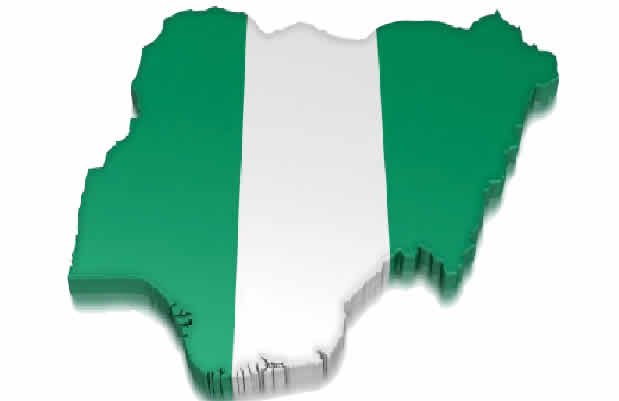
Last Sunday, May 29, 2022, marks 23 years of Nigeria’s return to civil rule. 1999 to date is generally referred to as the country’s Fourth Republic. The first (1960 – 1966), the second (1979 – 1983) and the third (1990 – 1993) were all interjected and punctuated by military coups. First on January 15, 1966 and December 31, 1983. The Third Republic was truncated by the annulment of the June 12, 1993 presidential election on June 24, 1993 before chains of events led to the inauguration of Chief Ernest Shonekan-led Interim National Government which itself was toppled in a palace coup led by General Sani Abacha (now deceased) on November 17, 1993.
General Abdulsalami Abubakar midwived the birth of this Fourth Republic when he handed power to former Head of State, Olusegun Obasanjo, on May 29, 1999 after the successful general election of that year. Altogether, the military had been at the helms of affairs of Nigeria for a cumulative 29 years. Since the 1999 transitional elections, however, there have not been any military interventions unlike what has been happening in our neighbouring countries like Guinea Bissau, Mali, Burkina Faso and Niger. The main electoral management body in Nigeria, the Independent National Electoral Commission, had supervised, undertook and organised six successive general elections as and when due in 1999, 2003, 2007, 2011, 2015 and 2019. The seventh general election is scheduled for February 25 and March 11, 2023.
For those, who may not know, Nigeria’s political structure is comprised of one president, 36 governors, 109 senators, 360 House of Representatives members, 993 State Houses of Assembly members, 768 local government areas and six area councils chairmen and 8,809 ward councillors. Total being 11,082. If the positions of vice president, deputy governors and vice-chairmen are added, the total becomes 11,893. These are the captains of Nigeria’s ship. How have they steered it?
I was on Nigerian Television Authority News 24’s ten o’clock news last Monday morning to appraise 23 years of Nigeria’s return to civil rule. I dare say the situation has been topsy-turvy. I am of the opinion that we are not where we ought to be even as we are also not where we used to be. To say the least, the performance of Nigeria’s elected and appointed leaders has been sub-optimal. Let’s check out a few statistics on Nigeria.
According to the 2020 United Nations Development Programme Human Development Report, Nigeria in 2020 has the following Human Development Indicators. Our Index is 0.539 and our rank is 161. This newspaper reported in its May 4, 2022 edition that “Nigerians were more miserable in 2021 than they were in 2020, statistics from the Hanke’s Annual Misery Index have shown. According to the report, which analysed 156 countries by calculating their unemployment rates, inflation, prevailing lending rates and GDP growths, Nigeria went from 15th among the most miserable countries in the world’s ranking in 2020 to 11th in 2021.” In the ease of doing business, Nigeria ranked 131st out of 190 countries in 2019. In Africa, the best country for doing business is Mauritius, which ranks among the first countries worldwide. In West Africa, Nigeria is the eighth country, with Ghana leading the ranking.
Nigeria has been ranked sixth in the 2022 Global Terrorism Index, an improvement from the fourth position it was in 2017. In the GTI, published by the Institute for Economics and Peace, an independent and non-profit think tank, Nigeria, Syria and Somalia were the only countries among the 10 most impacted by terrorism to record an improvement in score from 2020 to 2021. Despite this, Nigeria is still not in an enviable position given the daily abductions and banditry recorded across the country.
On the Transparency International Corruption Perception Index, Nigeria in 2021 scored 24/100 to rank 154/180 countries. Is Nigeria on the way to attain any of the 17 Sustainable Development Goals by 2030 after missing the eight Millennium Development Goals that ended in 2015? No assurances on that given the country’s deplorable education and health sectors, infrastructural deficit and backwardness in the Information Communication Technology sector.
The Cable online newspaper in its March 9, 2022 edition reported that India has surpassed Nigeria as the nation with the highest number of extremely poor people. The World Poverty Clock said this in its recent update, considering the COVID-19 pandemic economic effect. The WPC is an online tool that monitors the progress against poverty globally and regionally and provides real-time poverty data across countries. According to its data, extremely poor people are those living on N800 per day (less than $2 per day). In 2018, Nigeria held the position with about 87 million people in extreme poverty, compared with India’s 73 million. According to the new data, about 83 million Indians have been plunged into extreme poverty in 2022, representing six per cent of the country’s population which stands at 1.3 billion. For Nigeria, WPC said 70 million people are living in extreme poverty, representing 33 per cent of Nigeria’s over 200 million people. This is nothing heartwarming!
According to the National Bureau of Statistics, Nigeria’s 2021 unemployment figure is 33.3 per cent. This is widely believed to be a conservative estimate. As the saying goes, facts don’t lie! These indices and indicators are what we see as Nigeria witnesses 23 years of uninterrupted civil rule. Has democracy been a blessing or curse to Nigeria, I was asked by the news anchor on NTA last Monday? Well, I still prefer civil rule to the best of military rule. As I explained, under the military junta, there is nothing like civil liberties. The country is governed by draconian laws known as edicts in the states and decrees at the centre. These are laws made by a handful of people without wide consultation. If only for the fact that I have the opportunity to freely express myself and even go to court to seek redress if my rights are infringed upon, I prefer civil rule.
It is just important for all our elected and appointed political office holders to double down on misgovernance, corruption, unemployment, insecurity, inflation and poverty and the country will become an Eldorado. Governance is not rocket science. Many countries where there is a high standard of living are run by human beings like us and not angels. What Nigerian leaders need to do away with are those primordial sentiments of ethnicity, nepotism and religion. They should face governance squarely and shun personal aggrandisement and egotism. There is a need to break the culture of impunity and imbibe nationalism and patriotism.
As the country prepares for the seventh general election in 2023, unregistered youths should endeavour to register to vote on or before June 30, 2022, if they are 18 years and above. For those who have registered, they should endeavour to collect their Permanent Voters Card. Those who have registered and collected their PVC should keep it safe to exercise their franchise in 2023 when it will be time to elect a new set of political leaders. In 2023, we must vote out bad leaders!
Twitter: @jideojong
Copyright PUNCH.
All rights reserved. This material, and other digital content on this website, may not be reproduced, published, broadcast, rewritten or redistributed in whole or in part without prior express written permission from PUNCH.
Contact: [email protected]





